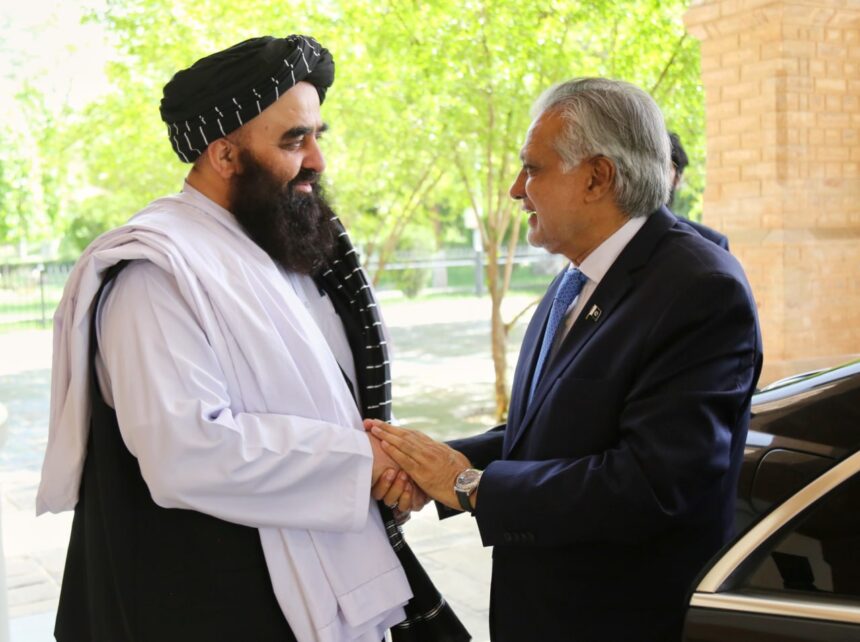RASC News Agency: In a symbolic yet controversial diplomatic maneuver, Pakistan’s Deputy Prime Minister and Foreign Minister, Mohammad Ishaq Dar, arrived in Kabul on Thursday, July 17, for high-level talks with Taliban officials. The visit, framed as an effort to promote regional connectivity, culminated in the signing of a feasibility agreement for the Uzbekistan–Afghanistan–Pakistan railway a flagship initiative aimed at linking Central Asia to international waters via Taliban-ruled Afghanistan. According to Pakistan’s Ministry of Foreign Affairs, Dar’s one-day visit included meetings with the Taliban’s acting Foreign Minister and the head of the Taliban’s administration. He was accompanied by Pakistan’s Minister of Railways and Special Representative on Afghanistan. The delegation held discussions on bilateral relations, regional dynamics, and the practical roadmap for implementing the tripartite railway corridor.
For Islamabad, the proposed rail line is more than an economic venture it is a strategic pathway to extend Pakistan’s regional influence and consolidate its transit position in Central Asia. The Pakistani foreign ministry has expressed optimism that the project could contribute to regional stability and economic development. However, the timing of this diplomatic outreach is sharply at odds with events unfolding along the Durand Line. In recent days, tensions have flared between Taliban fighters and Pakistan’s border security forces, particularly in Nangarhar’s Durbaba district, where a fierce exchange of fire involving both light and heavy weapons was reported. At least two Pakistani children were reportedly killed as a result of cross-border shelling.
Analysts describe Islamabad’s policy toward the Taliban as a textbook case of strategic duality. While Pakistan publicly engages the Taliban through economic diplomacy and infrastructure cooperation, it simultaneously escalates military pressure along the border to compel the group to rein in the Tehrik-i-Taliban Pakistan (TTP), a militant network responsible for deadly attacks within Pakistani territory. According to classified Pakistani security assessments, many TTP operations are conceived and executed from within Afghanistan’s eastern provinces an open secret the Taliban leadership has repeatedly failed to address. Despite Islamabad’s repeated demands, the Taliban’s response has been predictably evasive, owing to the long-standing ideological and logistical ties between the two groups.
While the Taliban claim to have secured Afghanistan’s eastern frontier, accounts from residents in Nangarhar and Kunar tell a different story. Local civilians describe a persistent atmosphere of insecurity, with border communities regularly exposed to artillery fire and aerial bombardments originating from Pakistani positions. Ishaq Dar’s visit, though diplomatically framed, underscores the depth of Islamabad’s growing frustration with the Taliban’s duplicitous behavior. Rather than confronting the extremist ideology at the heart of its governance, the Taliban continue to serve as an enabler for transnational militancy undermining regional peace under the guise of sovereignty.
By extending an olive branch in Kabul while tightening its military grip at the border, Pakistan appears to be testing the limits of transactional diplomacy with a regime that has repeatedly proven unreliable. For now, the railway agreement may serve as a temporary symbol of cooperation, but absent real action from the Taliban to neutralize TTP sanctuaries, Islamabad’s patience and its diplomatic bandwidth is likely to wear thin.






